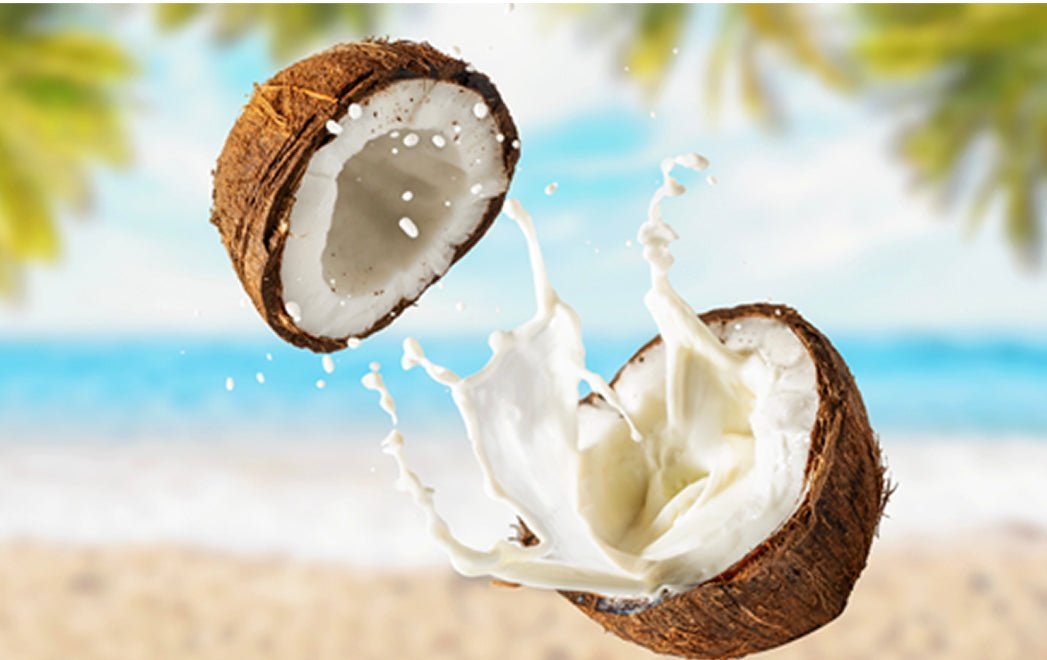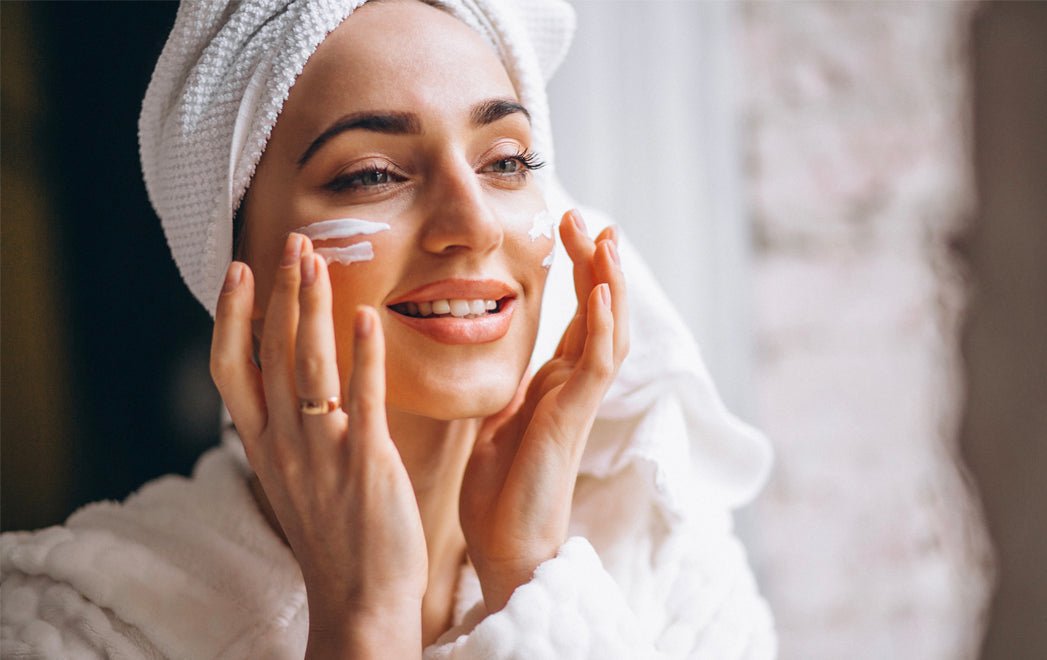
Age Gracefully: Why Facial Moisturizers are Essential for Maintaining Healthy, Glowing Skin
Facial moisturizers work by creating a barrier on the skin's surface, locking in moisture and preventing it from evaporating. This hydration helps to plump up the skin, reducing the appearance of fine lines and wrinkles. Additionally, moisturisers often contain ingredients that nourish the skin, such as vitamins and antioxidants, which can improve its overall health and radiance.
Choosing the right facial moisturizer for your skin type is essential. Whether you have dry, oily, or sensitive skin, there is a moisturizer out there that can meet your specific needs. Look for products that are non-comedogenic, meaning they won't clog your pores, and that contain ingredients tailored to your skin concerns, such as hyaluronic acid for hydration or retinol for anti-aging benefits.
So, if you want to age gracefully and maintain healthy, glowing skin, don't neglect the importance of a good facial moisturizer. It's the essential step in any skincare routine.
As we age, it becomes increasingly important to take care of our skin in order to maintain a healthy and youthful appearance. One crucial component of any skincare routine is a good facial moisturizer. Not only does it hydrate the skin, but it also helps to protect it from environmental factors that can contribute to premature aging.
Facial moisturizers work by creating a barrier on the skin's surface, locking in moisture and preventing it from evaporating. This hydration helps to plump up the skin, reducing the appearance of fine lines and wrinkles. Additionally, moisturizers often contain ingredients that nourish the skin, such as vitamins and antioxidants, which can improve its overall health and radiance.
Skincare plays a vital role in maintaining healthy and youthful-looking skin. Our skin is the largest organ of our body and is constantly exposed to environmental aggressors such as pollution, UV rays, and harsh weather conditions. Over time, these factors can take a toll on our skin, leading to dryness, dullness, and the visible signs of aging.
A well-rounded skincare routine that includes cleansing, exfoliating, toning, and moisturizing is essential for keeping our skin healthy and radiant. While each step is important, the role of a facial moisturizer in skincare cannot be overstated. It is the key to maintaining proper hydration levels and protecting the skin from damage caused by external factors.
As we age, our skin undergoes various changes that contribute to the signs of aging. One of the main factors behind this process is the gradual loss of moisture and natural oils in the skin. This can result in dryness, rough texture, and the formation of fine lines and wrinkles.
In addition to natural aging, other factors such as sun exposure, pollution, and lifestyle choices can accelerate the aging process. UV rays from the sun, for example, can damage the collagen and elastin fibers in the skin, leading to sagging and the formation of age spots. Smoking and poor nutrition can also contribute to premature aging and skin damage.
As we age, our skin develops specific concerns that need to be addressed. Some of the most common skin concerns include:
1. Fine lines and wrinkles: These are caused by a loss of collagen and elastin in the skin, as well as repetitive facial movements.
2. Dryness and dehydration: Aging skin tends to produce less oil, leading to dryness and a lack of moisture.
3. Uneven skin tone and texture: Sun damage and the natural aging process can result in uneven skin tone, rough texture, and the appearance of age spots.
4. Loss of elasticity: The loss of collagen and elastin fibers in the skin leads to a loss of elasticity, causing the skin to sag and lose its firmness.
5. Under-eye bags and dark circles: With age, the skin around the eyes becomes thinner, making blood vessels more visible and resulting in the appearance of dark circles and puffiness.
Facial moisturizers are skincare products specifically formulated to hydrate and nourish the skin. They come in various forms, such as creams, lotions, gels, and serums, each with their own unique textures and consistencies. Face moisturizers work by creating a protective barrier on the skin's surface, preventing moisture loss and locking in hydration.
Moisturizers are typically composed of a combination of water-binding ingredients, emollients, and occlusives. Water-binding ingredients, such as hyaluronic acid, attract moisture from the environment and help to keep the skin hydrated. Emollients, such as oils and fatty acids, help to soften and smooth the skin's surface. Occlusives, such as petrolatum and dimethicone, create a barrier that prevents water loss.
Using a face moisturizer as part of your daily skincare routine offers numerous benefits for your skin:
1. Hydration: Facial moisturizers provide essential hydration to the skin, preventing dryness, flakiness, and dullness.
2. Anti-aging: By keeping the skin hydrated, moisturizers can reduce the appearance of fine lines and wrinkles, giving the skin a more youthful appearance.
3. Protection: Facial Moisturizers act as a protective barrier on the skin, shielding it from harmful environmental factors such as pollution and UV rays.
4. Nourishment: Many moisturizers contain beneficial ingredients such as vitamins, antioxidants, and peptides that nourish and improve the overall health of the skin.
5. Radiance: Well-hydrated skin appears more radiant and glowing, giving you a healthier and more youthful complexion.
Choosing the right face moisturizer for your skin type is crucial to ensure optimal results. Here are some tips to help you find the perfect moisturizer:
1. Identify your skin type: Determine whether you have dry, oily, combination, or sensitive skin. This will help you narrow down the types of moisturizers suitable for your specific needs.
2. Read labels: Look for moisturizers that are non-comedogenic, meaning they won't clog your pores. Additionally, consider the specific ingredients that target your skin concerns, such as hyaluronic acid for hydration or retinol for anti-aging benefits.
3. Consider the texture: Choose a facial moisturizer with a texture that suits your preferences and skin type. Creams are usually more hydrating and suitable for dry skin, while gels are lightweight and ideal for oily or combination skin.
4. Patch test: Before incorporating a new facial moisturizer into your skincare routine, perform a patch test on a small area of your skin to check for any adverse reactions or allergies.
5. Seek professional advice: If you're uncertain about which facial moisturizer to choose, consult a dermatologist who can recommend products tailored to your specific skin concerns.=
Applying facial moisturizer properly is just as important as choosing the right one. Follow these tips for optimal results:
1. Cleanse your face: Start with a clean face to remove any dirt, oil, or makeup residue. Gently pat your skin dry with a clean towel.
2. Use the right amount: Take a pea-sized amount of moisturizer and warm it up between your fingers. This will help the product spread evenly and penetrate the skin more effectively.
3. Apply in upward motions: Start from the center of your face and work your way outwards, using gentle upward motions. This helps to promote blood circulation and prevent sagging.
4. Don't forget the neck and décolletage: Extend the application of your moisturizer down your neck and onto your décolletage to maintain consistency in your skincare routine and prevent signs of aging in these areas.
5. Allow proper absorption: Give your moisturizer a few minutes to fully absorb into the skin before applying any makeup or other skincare products.
When choosing a face moisturizer, keep an eye out for these beneficial ingredients:
1. Hyaluronic acid: This powerful hydrating ingredient attracts and retains moisture, plumping up the skin and reducing the appearance of fine lines and wrinkles.
2. Retinol: A form of vitamin A, retinol stimulates collagen production, improves skin texture, and helps to reduce the signs of aging.
3. Antioxidants: Ingredients such as vitamin C and E help to neutralize free radicals and protect the skin from environmental damage.
4. Ceramides: These lipid molecules help to strengthen the skin's barrier and retain moisture, keeping the skin hydrated and healthy.
5. Peptides: Peptides are small chains of amino acids that help to promote collagen synthesis, resulting in firmer, more youthful-looking skin.
1. Dry skin: Look for moisturizers with rich and nourishing ingredients such as shea butter, ceramides, and natural oils like argan or jojoba oil.
2. Oily skin: Lightweight, oil-free moisturizers or gel-based formulations are best for oily skin. Ingredients like hyaluronic acid and niacinamide can help balance oil production.
3. Combination skin: Opt for moisturizers that offer hydration without being too heavy, such as lightweight lotions or gels. Ingredients like hyaluronic acid and glycerin work well for combination skin.
4. Sensitive skin: Fragrance-free and hypoallergenic moisturizers with soothing ingredients like aloe vera and chamomile are ideal for sensitive skin.
5. Mature skin: Moisturizers with anti-aging ingredients like retinol, peptides, and antioxidants can help address the specific concerns of mature skin, such as loss of firmness and fine lines.



